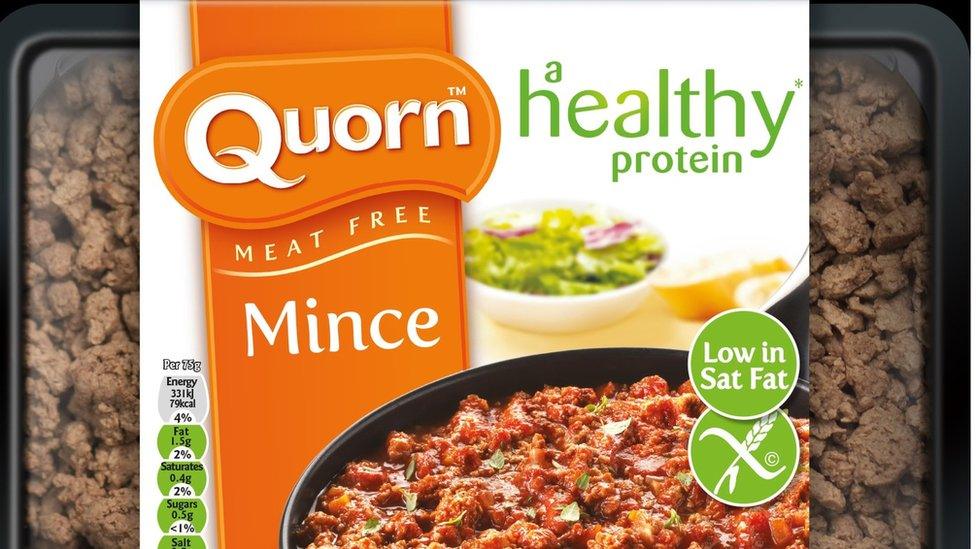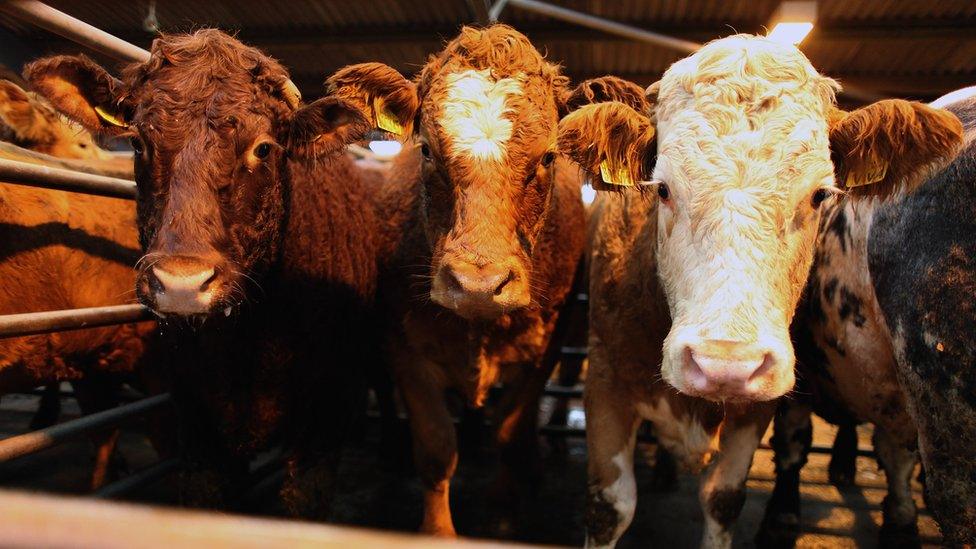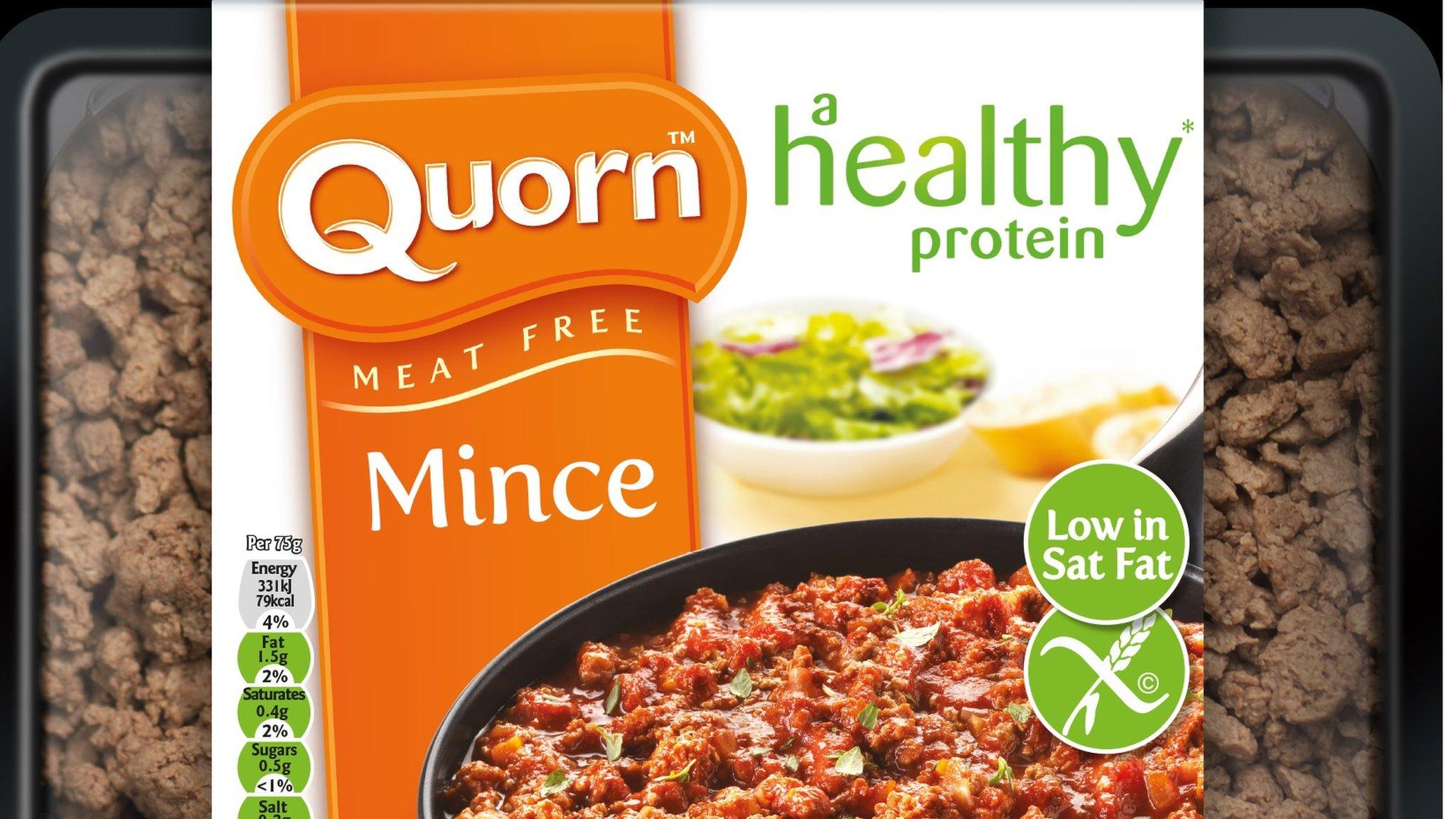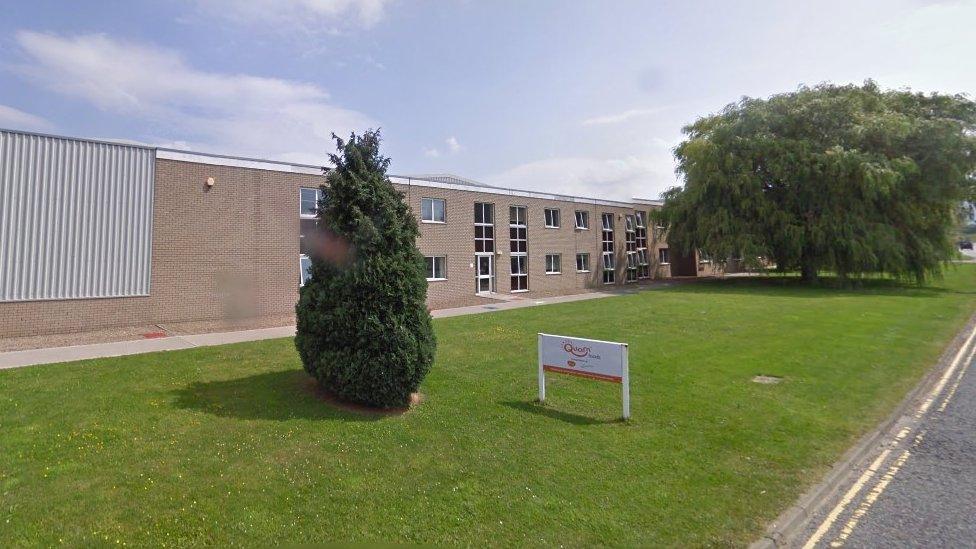Quorn booms as 'flexitarians' increase
- Published
- comments

Meat substitute company Quorn Foods says it has seen "unprecedented" global growth in the first half of this year, with sales up 19% worldwide.
The firm says it is benefiting from the rise of the "flexitarian" diet.
This means more people have been reducing meat consumption in favour of more sustainable protein sources.
As a result, it is investing £150m to double production at its main plant in Teesside and expects to create 300 new jobs there in the next five years.
"We are proud to be contributing to the UK's export drive and to be investing in a British innovation that is vital to addressing the future need for protein across a growing global population," said Quorn chief executive Kevin Brennan.
"Our growth will continue as expected, regardless of the Brexit deal that is reached.
"In fact, today's investment is indicative of our confidence in becoming a billion-dollar brand in the next 10 years."
The firm, which has been owned by Monde Nissin of the Philippines since 2015, says it made a pre-tax operating profit of £13.7m in the first six months of 2017.
Quorn, a meat substitute made from fungus, is sold on its own for use in recipes at home or in ready meals and products that mimic items such as burgers and sausages. It is available in 15 countries.
Quorn Foods has 650 employees on three UK sites and internationally: Stokesley in North Yorkshire, Billingham on Teesside and Methwold in Norfolk, as well as Frankfurt in Germany and Chicago in the US.
- Published28 January 2017

- Published30 September 2015

- Published24 April 2014
